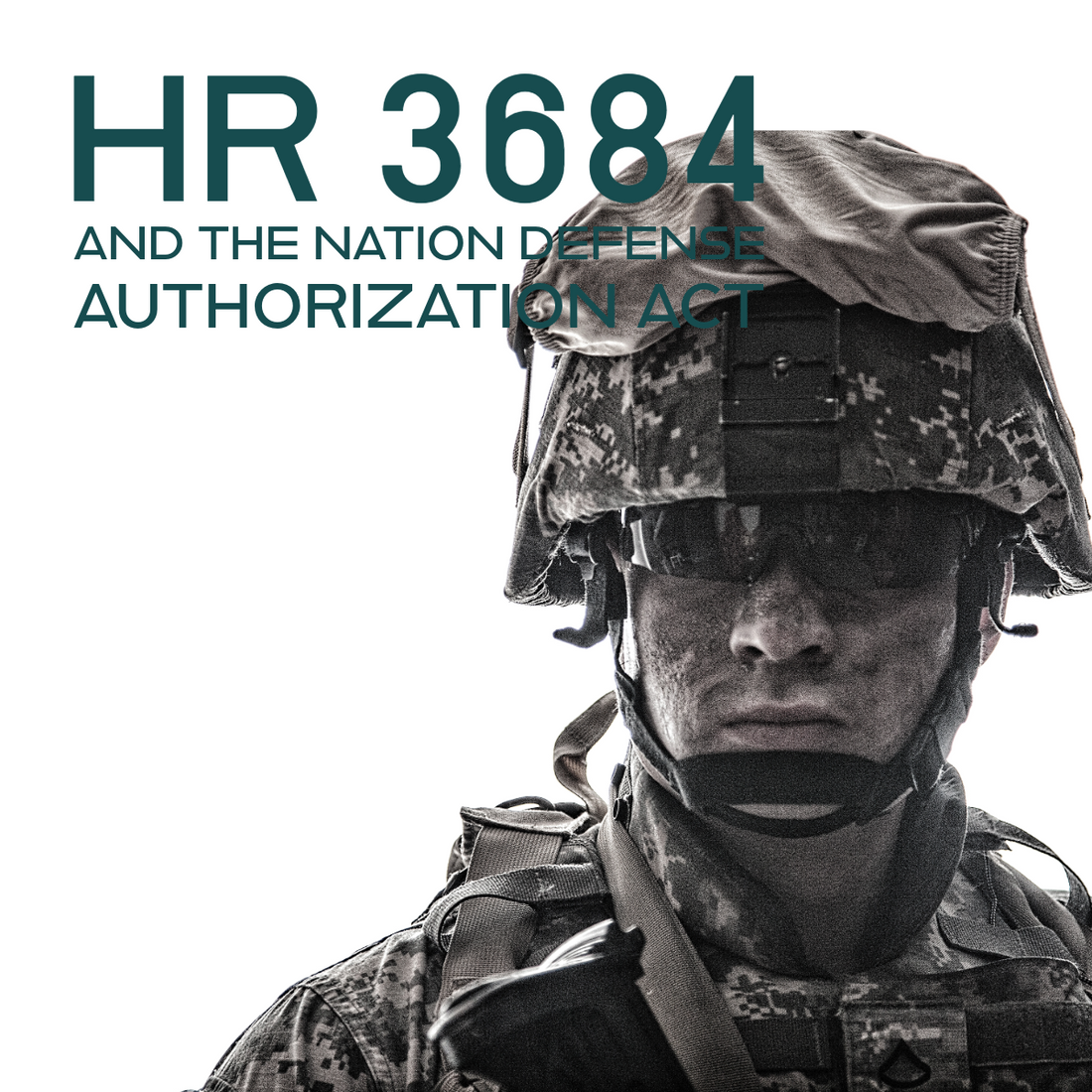
Prioritizing Veterans: An In-depth Examination of HR 3684 in the National Defense Authorization Act
Share
Recent legislation has stepped up to the plate in a promising endeavor to make our veterans' well-being and support a top priority. A bill identified as HR 3684, has been acknowledged, accepted, and implemented as an integral part of the National Defense Authorization Act. The motives behind this act are purely towards resolving the issues faced by our veterans, and further providing the much-needed resources and support required for them to thrive. Emphasizing the context, we aim to keep this discussion devoid of politics and rather focus on unveiling the potential, life-changing benefits that HR 3684 can bring forth for our deserving veterans. By breaking down the complexities of the bill, and developing an understanding of its implications, we dive deeper into the rigorous efforts underway to ensure that our veterans receive the value, admiration, and support they absolutely deserve.
Keeping Politics at Bay: A Comprehensive Analysis of HR 3684
Decoding HR 3684: Understanding the Basics
At its core, HR 3684 enriches the National Defense Authorization Act as it's meticulously designed to reconstruct and elevate the support framework tailored explicitly for our veterans. The primary objective under the spotlight of this bill is to assail paramount areas such as healthcare, addressing employment gaps through job training, and rehabilitation services. As an important note, HR 3684 propels initiatives that aim to chop away the often burdensome bureaucratic snags that create roadblocks against veterans' access to benefits.
The bill stands out in its advocacy for process simplification and improvement of resource distribution. This endeavor ensures that veterans can seamlessly and swiftly receive the assistance and support they need without unnecessary hindrances. Additionally, HR 3684 paves an innovative path forward, with a focus on exploring novel treatments like psychedelic rehab as potential solutions for PTSD (Post-Traumatic Stress Disorder), and other mental health complications tied to service. This legislation marks a monumental forward stride in recognizing and addressing the unique, multi-faceted challenges veterans encounter during and in the aftermath of their service.
The Connection Between HR 3684 and the National Defense Authorization Act
The critical role of HR 3684 comes into the limelight through its integration into the National Defense Authorization Act. This act is a pivotal piece of legislation that frames the budget and determines the expenditure of the U.S. Department of Defense. Acting as an effective carrier for vitally important policies tied to military personnel and veterans, this act underscores the level of commitment from our lawmakers towards tackling the urgent calls from our veteran community within the broad scope of national defense.
By arranging the benefits for veterans alongside other defense priorities, the strategic positioning of HR 3684 empowers ensuring that the initiatives for veteran support are empowered by the necessary authority, backed by substantial funding to create a real, tangible impact. The alignment further amplifies the importance of showing our unwavering support for those who have served our nation with valor.
The Potential Ripple Effect of HR 3684 on Veterans
Psychedelic Rehab: Venturing into New Therapeutic Territories
One groundbreaking provision of HR 3684 stands out; its firm support for exploring psychedelic rehab as a viable treatment option for mental health conditions that many veterans grapple with. This bold, innovative approach is relatively fresh in the field of veteran care but holds incredible promise, backed by encouraging outcomes from early clinical trials.
Psychedelic substances like psilocybin and MDMA, usually associated with recreational drug use, are under thorough investigation for their significant potential to alleviate PTSD, depression, and anxiety - mental health conditions that disproportionately impact veterans. The staunch support of the bill for such avant-garde treatments could potentially overhaul our approach towards healing the invisible wounds of warfare. It's important to note that HR 3684’s endorsement of psychedelic rehab represents a wider shift in attitudes towards mental health, beginning to break free from solely relying on traditional pharmaceutical interventions and talk therapy. This path will provide an array of care options tailored to the unique needs of veterans and open doors to embrace a range of innovative therapeutic strategies.
The Influence of Rep. Dan Crenshaw in the Evolution of HR 3684
Rep. Dan Crenshaw, with the perspective of a former Navy SEAL, has consistently amplified his voice in supporting HR 3684, facilitating substantial progress of the bill and fueling its veteran-centric provisions. Harnessing his military background, Crenshaw brings a unique insight into the needs of the veteran community, and his unwavering advocacy for the bill has successfully garnered bipartisan backing.
Enthused efforts from individuals like Crenshaw underline the significance of having skilled representatives in Congress who have a personal understanding of the challenges faced on and off the battlefield by service members. By capitalizing on his rich insights, he has played an instrumental role in ensuring that HR 3684 addresses practical issues like access to mental health services and innovative treatments like psychedelic rehab. His role shines a light on how combining strong leadership and personal experience can influence meaningful legislative change for the veteran population.
Looking Forward: The Path of HR 3684 under President Biden's Administration
Sailing with President Biden and the National Defense Authorization Act
With President Biden at the helm, the National Defense Authorization Act - that notably includes HR 3684, could witness an energized focus and momentum. President Biden has publically stated his commitment to meeting the needs of veterans and their families. This support from the administration could act as a pivotal factor for the execution and success of the veteran-focused initiatives outlined by HR 3684.
As attention from the highest levels of the government pivots towards the act, there is an accelerated potential for additional resources to be directed towards the programs it envelops. This outreach includes the unique approaches to mental health care such as psychedelic rehab, which can expect an expansion under federal endorsement. Backing from the administration iterates a resonating message of support for veterans, ensuring that their brave service and sacrifices remain recognized, honored, and translated into concrete legislative support.
Anticipating HR 3684's Ripple Effect on Veterans' Lives
HR 3684's anticipated influence on the lives of veterans is profound. This powerful piece of legislation is expected to bring forth more than just the promise of basic healthcare—it's designed for significantly transforming the veteran support system, making it more responsive, efficient, and effective. Key domains such as mental health support, job training, and rehabilitation services are likely to witness vast improvements.
The potential incorporation of psychedelic rehab threatens to bring new rays of hope for those wrestling with severe PTSD and other taxing mental health challenges. Additionally, the streamlined access to resources that HR 3684 promises is anticipated to significantly cut down on the stress associated with the often complicated navigation through the VA's bureaucracy. Veterans can expect to witness the influence of HR 3684 in their daily lives, translating to improved well-being, easier access to essential services, and overall empowerment. The bill's inauguration sends out a collective acknowledgment of the debt we owe to those who have so bravely donned the uniform. And it plots out the path towards not just repaying that debt but doing so with proactive and empathetic action.

